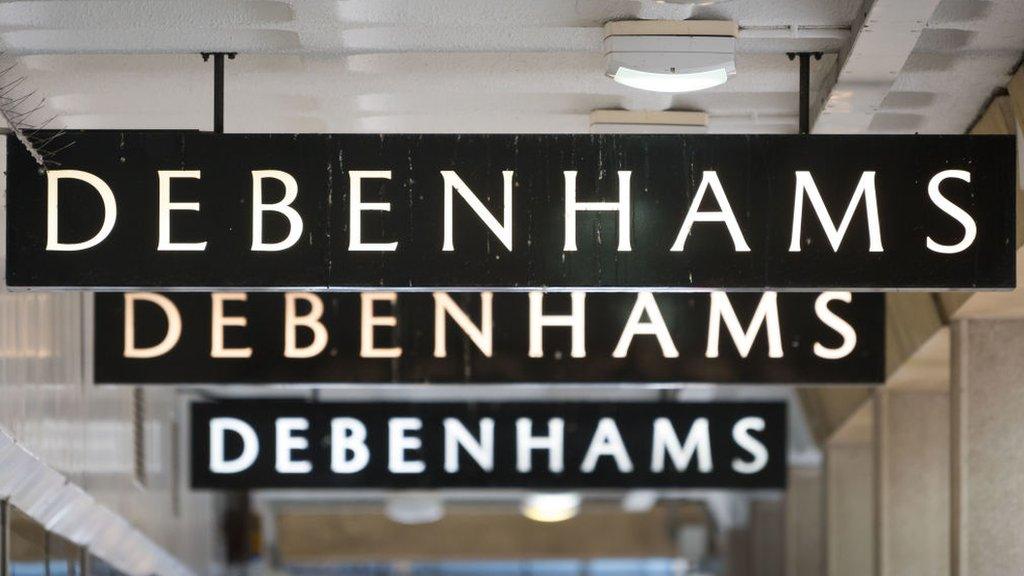Coronavirus: The ill economic winds of a pandemic
- Published
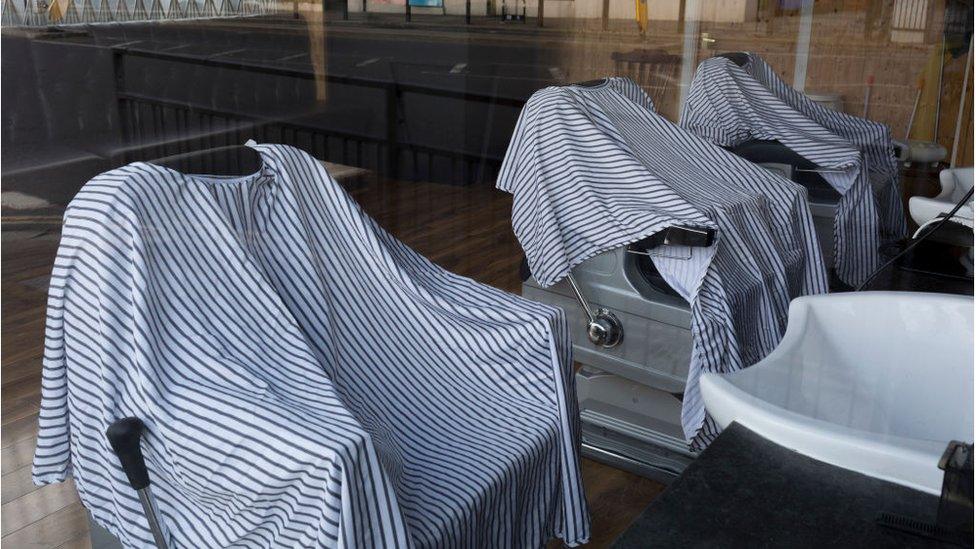
The move from plummeting markets into a profound impact on the everyday economy
Banks coming under growing pressure to ease up on private and business customers
Some big name brands edge closer to extinction
The economic crisis has moved from the stress indicators of global stock markets, which can often seem unreal and irrational, to the real world.
Market indices have stopped falling so fast ("too late to sell, too early to buy" was one investor's observation) and we are now beginning to get a sense of the scale of job losses.
The tourist industry was hit very hard with the denial of two big earners as far away as August in the Edinburgh festivals (cancelled) and the COP26 environment conference in Glasgow in November (postponed).
That underlined the heightened level of exposure for hospitality and tourism, and was a signal of how long this is going to affect the economy.
The prospect, of spectator sport potentially not returning until 2021, adds to that sense that it won't be over by Easter, or summer, or long after that.
Unemployment surge
The most startling numbers were from the USA. One way of measuring unemployment in the States is by the number of people who register each week. In Britain, we don't have data that responds that fast.
The US figure the week before last was up by 3.3m, more than four times the previous one-week record. This week, that was up to 6.6m.
The closest indicator in the UK is the number of people registering for Universal Credit, up nearly a million in only nine days.
A lot of worklessness - that is, having nothing to do - is mitigated by the UK government pouring money into job retention schemes, both for the employed and the self-employed.
That may be a much bigger number than the government thought it would be. A lot of employers are turning to that as a means to keep people on their books, and to handle the sudden drying up of cash flow.
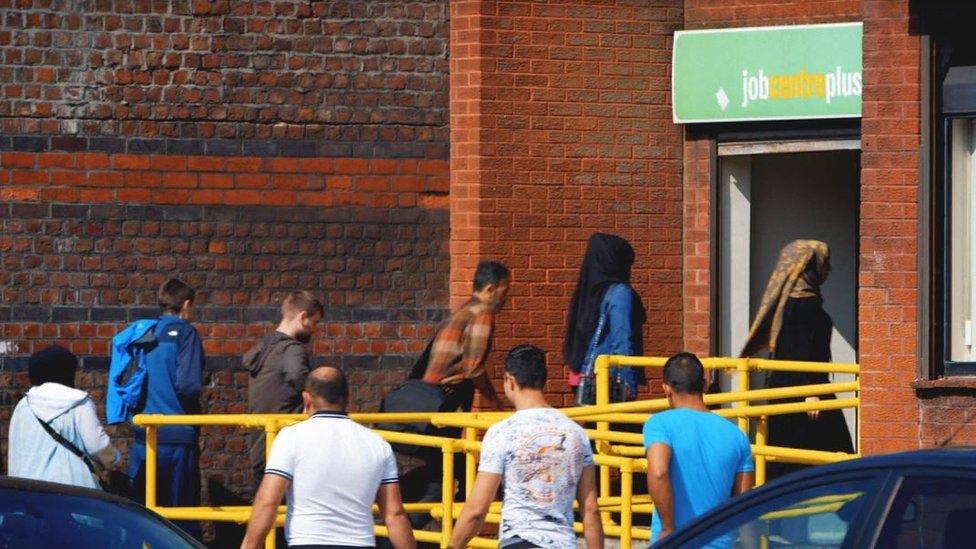
Job centres have now been closed to everyone but the most vulnerable claimants
Furlough for long?
Can we be sure those put on furlough will return to work? Not if employers are seeing it as a stepping stone to redundancy.
A downturn like this is an opportunity for companies to shake out inefficiencies. The jobs market has been very tight, putting workers in a strong position.
But it's suddenly switched to giving bosses more leverage to cut their payroll costs. Football clubs show that happening.
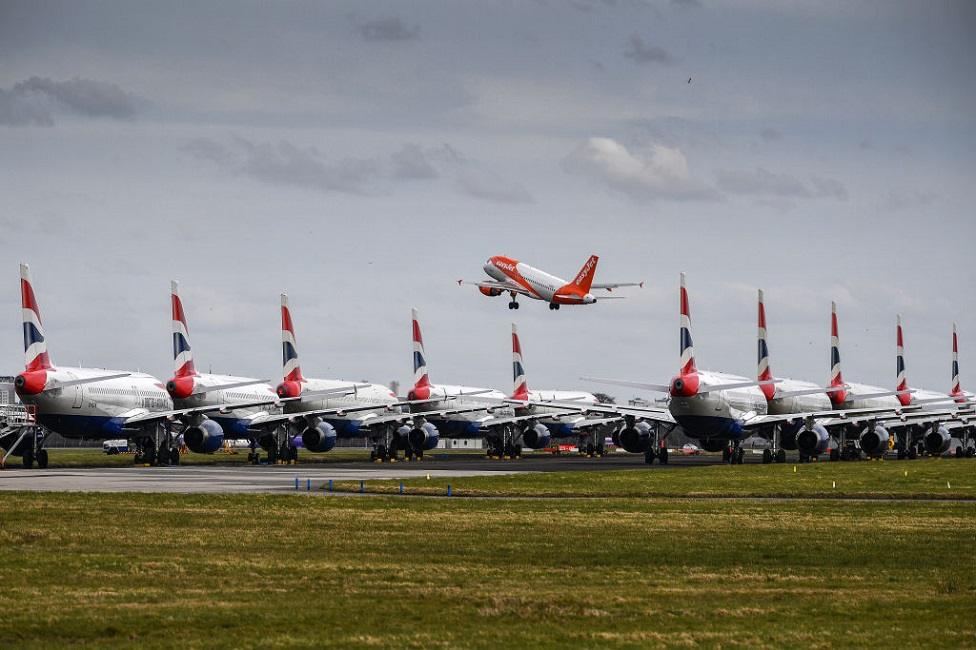
British Airways planes grounded at Glasgow Airport as the company gets to grips with the biggest crisis that the aviation sector has ever faced
Putting workers on furlough for three months does not guarantee they'll be taking all those people back.
Trade unions are alert to the risk that this furlough could lead to redundancy, so they're pushing for furlough deals that will not lead to redundancy, such as the one announced for more than 30,000 employees of British Airways.
A deep downturn
One forecaster, the Bank of America, has estimated a drop in UK output of 7.4%, with most of that lost ground being made up next year.
But recovery, it said, depends on the UK Government and the Bank of England taking ever more unconventional measures.
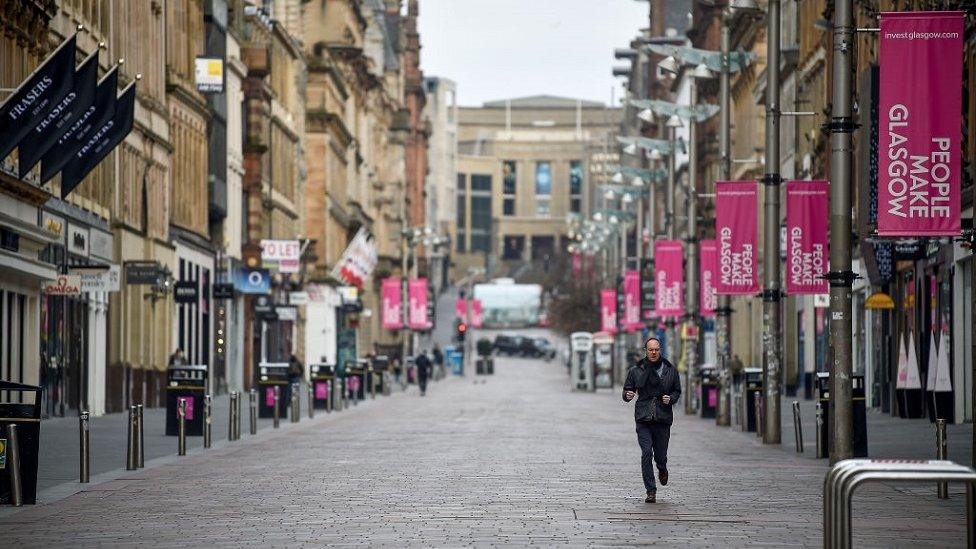
The streets of Scotland's biggest city are all but deserted, creating big revenue headaches for retailers
That looks like a hint of much more money-printing (in reality, the buying of bonds using money created by the central bank, as only it can).
And to spark spending, it could push interest rates into negative territory, meaning we would have to pay the banks to look after our savings.
Prodding banks
A huge amount of government money has been committed to business grants, business rates holidays, loans and loan guarantees.
That's borrowed money, of course, with the Debt Management Office saying that it's about to auction £45bn of bonds.
The scale of the commitment is staggering. But for companies, borrowing money to get through this, however cheap that debt is, does not look that attractive to many in business, and less so when their banks add tough conditions when the government lending is put out into the market.
The government will back 80% of a loan with its guarantee, and banks have been looking to protect their position with demands of personal guarantees - on company directors' homes, for instance.
One of the interesting things to watch in recent days is the way the banks have been prodded, pushed and then forced into relaxing the discipline they usually require of their customers.
The financial regulator also stepped in to tell banks to ease up on individual customers, reducing the cost of overdrafts. Holidays are being required on loan repayments and credit card bills, without harming credit ratings.
Busy time for administrators
What banks fear is their loan books going badly sour.
Any shock or shakeout in the economy is going to push the weaker companies over the edge.

Debenhams, the department store chain, is facing administration for a second time
So we began to see the collapse of some that were already a bit shaky, for various reasons - Brighthouse, the rent-to-ownership retailer was one. Carluccio's restaurant chain was already closing outlets, including two in Scotland.
Debenhams was already working through a programme of closing 50 stores. On Friday, it set about protecting itself against creditors who are not being paid for supply of stock.
Others will inevitably follow. The money being thrown at this crisis is intended to ensure it doesn't spread to those in fundamentally good financial health, with the potential to return to business as the economic lockdown is relaxed.

A SIMPLE GUIDE: What are the symptoms?
AVOIDING CONTACT: Should I self-isolate?
LOOK-UP TOOL: Check cases in your area
WILL I GET PAID IF I SELF-ISOLATE? The rules on sick pay

- Published1 April 2020

- Published1 April 2020
- Published2 April 2020
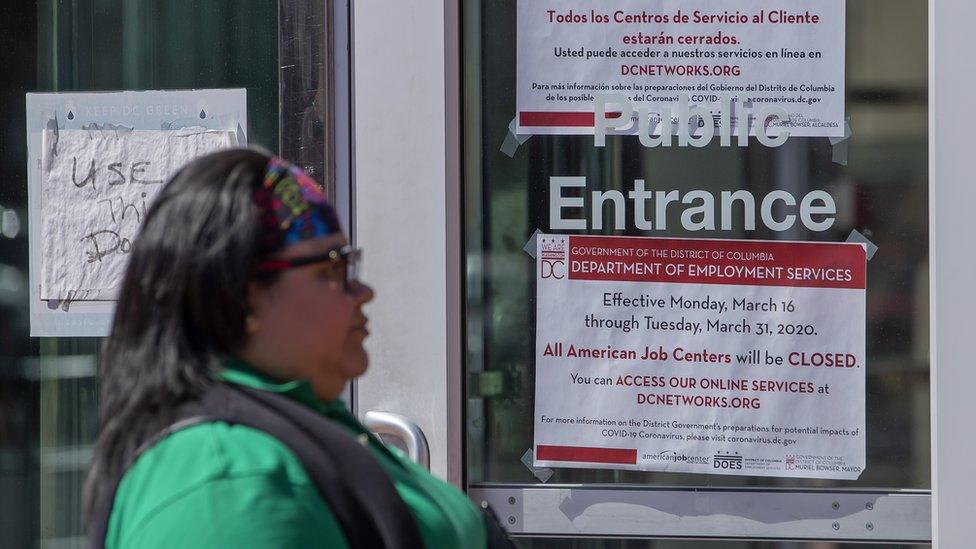
- Published31 March 2020
- Published2 April 2020
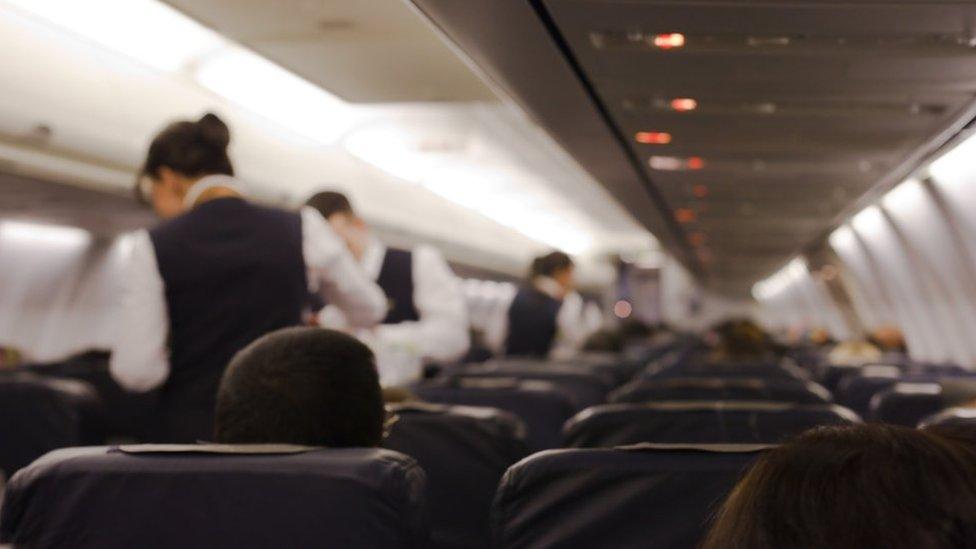
- Published25 March 2020
- Published3 April 2020
